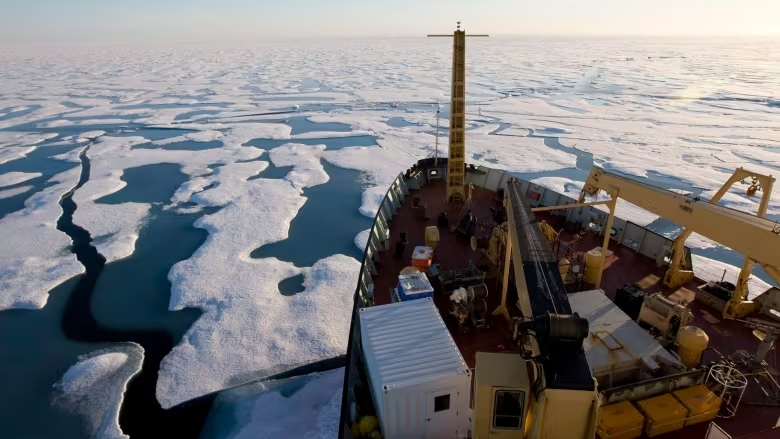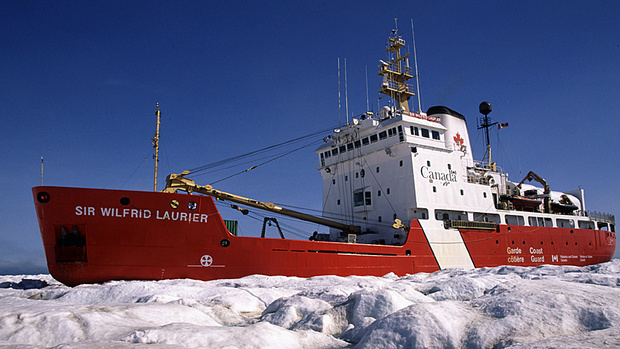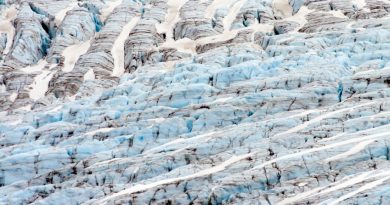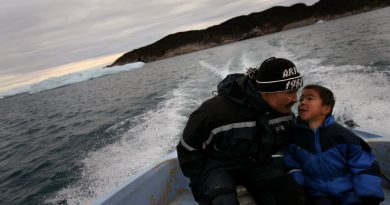It’s a wrap for Canadian Coast Guard’s 2023 season in Arctic

The Canadian Coast Guard’s operational season in the Arctic is done for 2023, the agency said on Monday.
“The CCG plays a crucial role in supporting Canada’s Arctic sovereignty across the region,” the statement said.
“Through its presence, operations, and marine traffic monitoring, CCG’s annual Arctic operations continue to demonstrate and reinforce Canada’s long-standing, well-established sovereignty in the North.”
2023 Arctic operations ✔️#BravoZulu to all who made this season a success! We’re working hard to make Northern & Arctic waters safer and expand our services across the region. pic.twitter.com/L6IQo6H2Oo
— Canadian Coast Guard (@CoastGuardCAN) December 18, 2023
In all, eight icebreakers were deployed to the Arctic in 2023 before returning south.
Unusual season
In the Arctic, the Canadian Coast Guard’s responsibilities include search and rescue, icebreaking, and supporting scientific research, marine communications and traffic services, navigation, marine environmental response and the summer re-supply of northern communities.
In 2023, the coast guard also helped support the country-wide efforts to respond to the the record-breaking fires in Canada’s Northwest Territories.
“Canadian Coast Guard Ships (CCGS) Eckaloo and Dumit, along with CCG personnel provided crucial support to the Government of the Northwest Territories in emergency response efforts,” the agency said.
“Collaborating closely with local authorities, various supporting departments, volunteers, and emergency services, CCG stood ready for search and rescue emergencies in the community, aided first responders and civilians, and actively participated in supporting volunteer firefighting efforts.”
- 51 commercial escorts
- 34 helo-based ice reconnaissance missions
- 2 commercial harbour breakout
Joint Canada-U.S. training
In July, the Canadian Coast Guard trained did a joint training activity off Alaska’s arctic coast with its U.S. counterpart to practice coordination, and collaboration at sea in the High North.
In addition to testing different communication methods, the CCGS Sir Wilfrid Laurier and USCGC Healy also conducted small vessel exercises, and sailing manoeuvres.
“The exercise allowed both coast guards to strengthen our longstanding relationship, and further improve interoperability and collaboration in the Arctic,” the agency said.

The Canadian Coast Guard also trained with the United States Coast Guard and the Royal Canadian Air Force in September on emergency response in the North.
During the Herschel Island Joint Exercise, participants tested their response to a scenario involving a cruise ship fire in the Beaufort Sea.
“Exercising with partners allows crews from different agencies to exchange techniques, best practices, Indigenous knowledge, and build relationships with respect to incident responses in Canada’s unique Arctic environment,” the agency said.
“This in turn helps enhance response capabilities in the event of a major maritime incident in the Arctic.”
Operations resume in May
The Canadian Coast Guard has three northern locations: the Northwest Territories communities of Yellowknife and Hay River and in Iqaluit in the eastern Arctic territory of Nunavut.
The coast guard’s Arctic operations will restart in May 2024.
Write to Eilís Quinn at eilis.quinn(at)cbc.ca
Related stories from around the North:
Canada: Crew member in ‘critical but stable’ condition after Iqaluit barge accident, CBC News
Greenland: Stranded cruise ship pulled free at high tide in Greenland, the Associated Press
Russia: Growth in Arctic shipping warrants Polar Code adjustments, say experts, Eye on the Arctic
United States: Carnival Corporation ships switch to cleaner fuel on Arctic cruises, Radio Canada International



